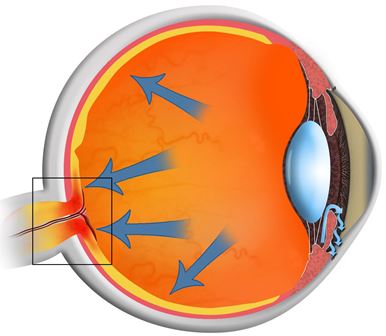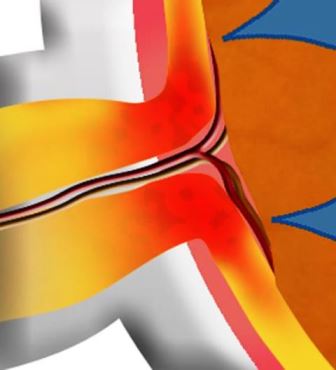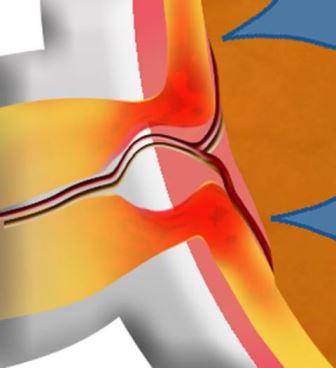Is glaucoma hereditary?
Yes, except for secondary glaucoma. It is important to screen all family members to rule out glaucoma in a patient’s siblings, children, and parents.
If I have pressure in my eyes, will it affect any of my family members?
Yes, it could. It is a hereditary problem. This is why parents, siblings, and children of the patient should be screened for glaucoma.
How often should I come for a checkup?
All adults above the age of 40 and all people with a family history of glaucoma should get their eyes screened once a year. If you have been diagnosed with glaucoma, you should come for a check-up whenever your doctor suggests.
Why are you checking my cornea? I thought I have glaucoma, which only affects eye pressure?
Thickness of the cornea may also affect the eye pressure. This is why some doctors may ask to check the cornea.
Is there any relationship between body pressure and eye pressure?
There is no DIRECT link between the two. High blood pressure does not mean you have high eye pressure. However, high blood pressure may be a risk factor for developing glaucoma.
Should I control my diet to maintain normal eye pressure levels?
There is no link between eye pressure and diet. So, you will not need to control your diet to improve your eye pressure. However, keep in mind that high blood pressure may be a risk factor for developing glaucoma.
What is the normal value of eye pressure?
The normal value ranges from 12.2 to 20.6 mmHg.
What should I do to avoid eye pressure?
You should come for an eye check-up every 6 months.
Does watching TV increase eye pressure?
No. Watching TV has no relation to increase in pressure
How long should I take the medications?
To prevent future vision loss, the glaucoma medications MUST be taken for the rest of your life. You may only stop the medication if your doctor recommends that it be stopped.
Even if I don’t use my medications for 2-3 weeks, I am fine. Why should I continue the medications?
Glaucoma is a very slow disease that affects the optic nerve. Even if it seems like your vision is fine, it is slowly getting worse as the disease advances. Our aim is to prevent ALL future vision loss. This is only possible if you follow your treatment plan.
Even after using expensive medications for many years, my vision has not improved. How come?
Vision lost due to optic nerve damage cannot be regained. We can only hope to treat glaucoma by stopping future damage.
Will the eye drops reverse vision loss?
No. The eye drops only help lower the eye pressure. This will prevent future vision loss. There is no way to recover vision once it is lost to glaucoma.
If my eye pressure is normal, why should I continue my eye drops?
If your eye pressure is normal, you should continue using drops to maintain the normal level. Without the drops, your pressure may raise. The nerve will be damaged more and vision will be lost.
If I have pressure in my eye, how long should I use the eye drops?
You should use them for the rest of your life.
If I have other family members with high eye pressure, can they use my eye drops?
No, they cannot. These family members should see an eye doctor and get their own prescription, if necessary.
The doctor said to keep the drops in the fridge. But I do not have a fridge. What should I do?
Some drops need to be refrigerated in order to work properly. If you do not have a fridge, please tell your doctor. They can give you alternative drops that do not need refrigeration.
The doctor said I should use eye drops 2 times per day, but now you are telling me to put it 1 time per day. Why?
The number of times per day depends on the power of the eye drops. If the doctor asked you to apply the drops twice per day, then each drop lasts for 12 hours. However, if you switch to applying drops once per day, the drop is stronger. The stronger drops can last the entire 24 hours.
What should I do after putting the eye drops?
You should close your eyes for at least 10 minutes after putting the eye drops.
Can I buy the same drops from another place once I’ve finished my bottle?
Yes
I feel uncomfortable applying the eye drops every day. Is there any other treatment?
No, there is no other treatment unless your eyes are not responding to the eye drops. You should use the drops as instructed by your doctor. Eye drops are the main way of treating glaucoma, so they must be applied regularly.
If I forgot to instill my eye drops at a specific time, what should I do?
As soon as you remember, instill a drop in your eyes and continue the schedule as earlier prescribed.
What does laser treatment mean?
Laser means that a high energy light beam is aimed at the eye to lower its pressure.
What is the purpose of the laser?
The purpose is to reduce eye pressure by lowering the fluid buildup in the eye. This can occur in a few ways. It depends on your type of glaucoma. First, the laser can open up the eye’s drainage channels. This makes it easier for the fluid to drain out of the eye. Second, the laser can create a new path for the fluid to drain. Lastly, if vision cannot be restored, then a special diode laser can destroy some of the cells that produce too much fluid.
If I undergo laser treatment, will my vision improve?
No, this is not to improve vision. It is to get a normal eye pressure and to slow the damage to the optic nerve.
If I get laser treatment, will it harm my eye?
No. Sometimes, you may experience a mild headache or your eyes may become sensitive to light. This is a normal side effect and should not last any more than 2-3 days.
If I don’t get the laser treatment, what will happen to me?
If your doctor recommends laser treatment, you must get it. If you don’t, your eye pressure will increase and your vision will permanently decrease.
Will you need to repeat the laser again?
Yes, some patients will need to get laser treatment a few times before the fluid drainage returns to normal.
Can I undergo laser treatment in both eyes in the same sitting?
Yes.
Should I use eye drops before the laser procedure?
Yes, you should apply the drops before the laser.
Why should I use the eye drops before laser?
Your pupil must be small for the laser treatment. This is accomplished with the eye drops.
Do I need to stay in the hospital overnight if I’m getting a laser treatment?
No, you don’t need to. It is an outpatient procedure.
For how many days should I be using the eye drops after laser?
You should use the steroid eye drops for 2 weeks.
Should I use laser eye drops again in the future?
No, you should not use those drops again.
Can I have a head bath after laser treatment?
Yes. Laser treatment is a non-invasive procedure, so you may have a head bath when you go home.
What is the purpose of glaucoma surgery?
The surgery is to control pressure. In this way, it stops the progression of the disease.
After getting glaucoma surgery, should I continue taking the eye drops?
No, you should stop the drops. If eye drops are needed again, your doctor will tell you during the follow-up appointment.
Does this surgery prevent vision loss?
You will not get back any vision you already lost. It will prevent future vision loss.
How many days will I need to take bedrest after the surgery?
It is recommended that you rest for at least 15 days after the surgery,
Will I have any problems after the surgery?
During the surgery, stitches/sutures will be placed in your eye. This may cause some irritation. However, when the stitches/sutures are removed, the irritation also goes away.
Can’t you replace my eye?
Unfortunately, there is no way to replace an entire eye with a donor’s eye. As of now, only the cornea of the eye (the front surface) can be replaced. Since glaucoma damages the optic nerve at the back of the eye, corneal transplants will not help treat glaucoma.
How many visits do I have to make after glaucoma surgery?
You will need to make 4-6 visits within three months following surgery for removal of sutures and for injections if required..
After how many days can I drive?
You can drive a month after surgery, after the doctor has examined your eyes.






